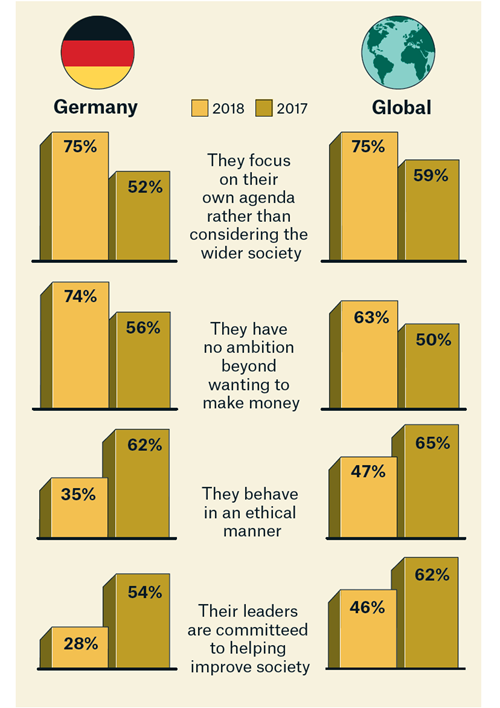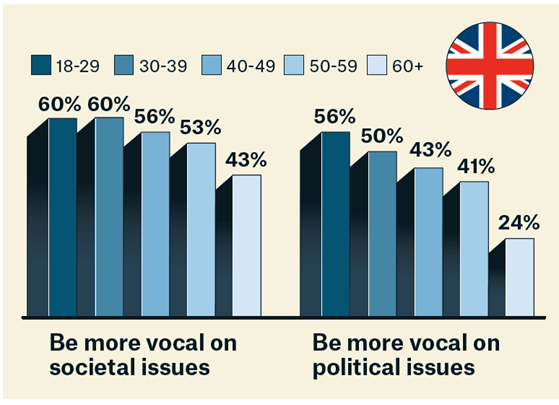Millennials will be the ones to put words into action. Their experiences and accomplishments already prove as much.
They donate: Despite being the worst-off generation financially, in 2011 (yes, deep into the financial crisis), 63 percent of millennials donated to three or more nonprofits, according to the Millennial Impact Report.
They invest in their employees: Sixty percent of millennial business owners invest in office perks to keep their employees happy (compared to 31 percent of GenX, 27 percent of Baby Boomers) according to the University of California Management Review.
They continuously self-educate: During the pandemic, 38 percent of millennials and 40 percent of GenZ have used the time to concentrate on personal development (compared to the average of 29 percent), a Kantar study found.
They are used to a precarious world: In 2008, US millennials were graduating during a recession, and absorbed much of the country’s earnings losses. Younger Europeans were disproportionately affected by high unemployment and part-time work. And COVID-19 has set millennials back further, representing the highest portion of the unemployed in the US, according to the Washington Post.
They know how to live with less: Younger generations are more educated, have more debt, and earn 20 percent less than previous generations, according to the NGO New America. This is also reflected in decline in homeownership and other activities previous generations enjoyed.
Millennials are ready to change the world for the better. We’re willing and able to live with less. In our view, struggling minority groups aren’t the distant other; they are us, our friends, colleagues, and partners. We know that putting ethics ahead of profit is not just the right thing to do; it’s good for business. We accept that our planet is doomed unless we act.
As members of a generation dealt a difficult hand, we have no choice. Each of us bears some capacity to lead. On the front lines and in the C-suite, we must be the change we wish to see. Let’s use this extraordinary moment between Zoom meetings and Netflix binges to “build back better” what previous generations left us. Let’s stop excavating the earth underneath us and start planting seeds. We can, and will, deliver.
--
Jennifer Huffman is an Associate with Brunswick in Frankfurt, specializing in M&A, crisis and sustainability. She previously worked in the US Congress, US State Department and the German Parliament.
Photograph: visionandimagination.com
Graphs: Peter Hoey


